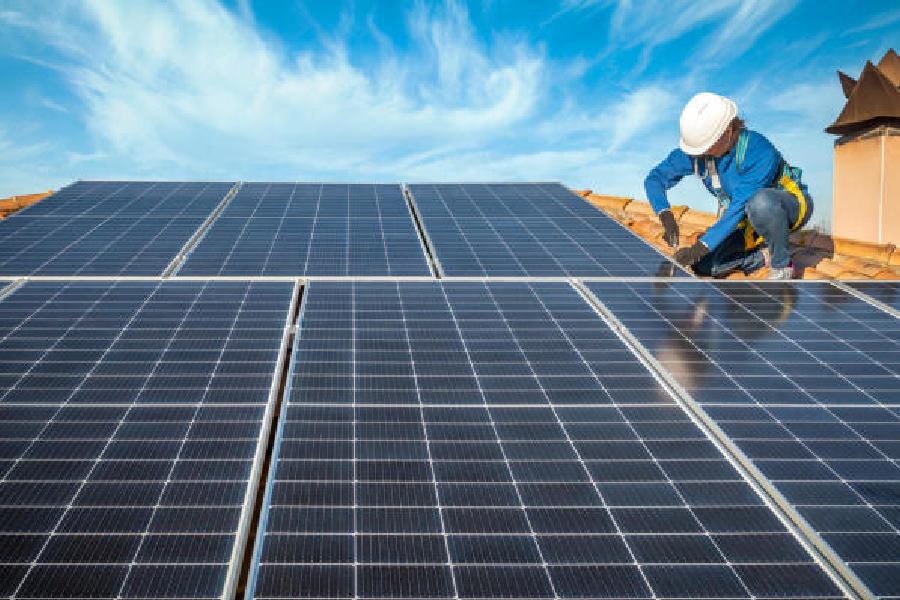The Indian economy is poised to grow in the coming years but the growth should be sustainable and in the hands of clean energy. This was the consensus among speakers at a seminar on “Energy Transition- for sustainability and energy security” held at BE College Ex-Students Club in CK Block on February 22.
Guest of honour, Rabi Chaudhury, former MD, CESC and director of CPL, that operates a coal washery and thermal plant, felt it was all about “powering progress, greening India”. “Energy security implies that in case of any political disturbance across the world we will not be affected or destabilised in any way,” he said, citing how the Russia-Ukraine war shot energy prices up, compelling nations to introspect regarding the availability of resources within their own borders.
Chaudhury explained that a whopping Rs 19,400 crore had been allocated for India’s Hydrogen Mission and that in 2024, stress was laid on rooftop solar power. “As per December 2024, the capacity of rooftop solar energy was 15.7GW and for long-term security India has considered 100GW of nuclear power by 2040,” he said.
He also spoke of the difficulties that arise with depending in renewable power alone. “There are issues like initial investment costs and unpredictability but to tackle these, one reaches out to Battery Energy Storage System (a method of storing electricity from renewable and non-renewable sources in batteries). The power, however, needs to be affordable and accessible to all, without compromising the environment,” he said.
Chaudhury quoted the Prime Minister’s speech at Glasgow for the COP26, where by 2030, the latter said India will have a capacity of 500GW renewable energy from solar, hydro, and wind sources. The capacity from solar will be 300GW, up from the present 100GW, from wind it will be around 98-99 GW, up from around 50GW. “Due to the large coal reserves in India, we cannot say no to coal at least till 2047 but if policy makers, politicians, and regulators of utilities join hands, India can produce an environmental-sensitive and resilient economy for our future generations,” he said.
Also on the dais was pro-vice chancellor of Jadavpur University Prof Amitava Datta, who compared the changing definitions of development. “Previously economic development was the only marker for development in a country; then came human development index, which included fields of health and education. But now is the time for sustainable development,” Datta said. “Sustainable development is that which meets the needs of the present generation without compromising the needs of the future.”
Datta shared how seemingly normal activities of modern society have a hand in extreme consumption of energy. “A Google search, for instance, uses 0.3 watt-hour energy whereas the more recent ChatGPT uses 2.9 watt-hour,” he said, also promoted the use of electric vehicles (EV) as a means of going green. “There are 40 million EVs across the globe, of which 60 per cent are registered in China, 20 per cent in the European Union countries, 10 per cent in the US and remaining just 5 per cent in the rest of the world,” said Datta, adding how the northern and southern regions of the country are conducive for harnessing wind and solar energy.
Secretary of the club Kamal Kumar Simlai said they organised the seminar to find ways to move forward in a positive direction. “The backdrop is a complex situation with conflicting priorities but we must find a real cleaner, safer, and affordable approach towards sustainability,” he said. “We saw representation from renowned organisations as well as students of engineering colleges, who also competed in a poster-making contest on the theme.”











